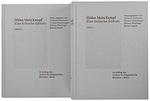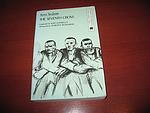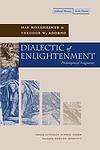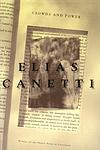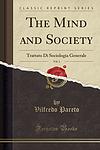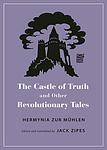The Greatest Italian, German "Political" Books Since 1910
Click to learn how this list is calculated.
This list represents a comprehensive and trusted collection of the greatest books. Developed through a specialized algorithm, it brings together 305 'best of' book lists to form a definitive guide to the world's most acclaimed books. For those interested in how these books are chosen, additional details can be found on the rankings page.
Genres
The "Political" category of books encompasses works that explore the theory, practice, and history of government and politics. These books may cover topics such as political ideologies, political systems, political institutions, political movements, and political leaders. They may also examine the relationship between politics and other areas of society, such as economics, culture, and international relations. Political books can be both informative and thought-provoking, offering readers insights into the complexities of the political world and the challenges of governing in a democratic society.
Countries
Date Range
Reading Statistics
Click the button below to see how many of these books you've read!
Download
If you're interested in downloading this list as a CSV file for use in a spreadsheet application, you can easily do so by clicking the button below. Please note that to ensure a manageable file size and faster download, the CSV will include details for only the first 500 books.
Download-
1. The Tin Drum by Günter Grass
The novel tells the story of Oskar Matzerath, a boy who decides on his third birthday that he will stop growing and remain a three-year-old forever. Oskar is gifted with a tin drum by his mother, which he uses to express his emotions and thoughts. Living in Danzig during the rise of Nazi Germany, Oskar's refusal to grow is a form of protest against the adult world. The book is a blend of magical realism and historical fiction, providing a unique perspective on the horrors of World War II and the post-war era in Germany.
The 94th Greatest Book of All Time -
2. The Origins of Totalitarianism by Hannah Arendt
The book explores the roots of totalitarian systems, particularly focusing on Nazi Germany and Stalinist Russia. It delves into the historical, social, and political circumstances that led to the rise of these oppressive regimes, including anti-Semitism, imperialism, and the decline of the nation-state. The author further discusses the nature of power, the role of propaganda, and the manipulation of the masses in these systems, providing a comprehensive analysis of totalitarianism.
The 583rd Greatest Book of All Time -
3. Economy and Society by Max Weber
"Economy and Society" is a comprehensive analysis of the relationship between economy and society, focusing on the role of social actions and their impact on economic systems. The book presents a theoretical framework for understanding how economic and social structures influence each other, including the role of bureaucracy, power, and authority. The author also introduces his famous concept of the "Protestant Ethic", linking the rise of capitalism to certain aspects of Christian beliefs. The book is considered a fundamental text in sociology and economics, providing a deep understanding of social and economic phenomena.
The 962nd Greatest Book of All Time -
4. Eichmann in Jerusalem: A Report on the Banality of Evil by Hannah Arendt
This book is a thought-provoking exploration of the trial of Adolf Eichmann, a major organizer of the Holocaust. The author argues that Eichmann was not a fanatical ideologue, but rather an ordinary individual who simply followed orders and bureaucratic procedures, highlighting the terrifying potential for evil in any system that values obedience over personal responsibility. The concept of the "banality of evil" is introduced, suggesting that horrific acts can be committed by ordinary people under certain conditions.
The 978th Greatest Book of All Time -
5. Mein Kampf by Adolf Hitler
This book is a two-volume work written by a prominent dictator during his imprisonment in 1924. It outlines his political ideology and future plans for Germany, combining elements of autobiography with an exposition of his views on race, nationality, and governance. The author's main thesis is that the German-speaking 'Aryan' race is superior to all others, and that it is the duty of the state to preserve the purity of this race through policies of racial segregation, expansionism, and extermination. The book also contains detailed discussions on the author's hatred towards Jews, Marxism, and the parliamentary system.
The 1047th Greatest Book of All Time -
6. The Lost Honour of Katharina Blum by Heinrich Böll
"The Lost Honour of Katharina Blum" is a story about a young woman who becomes the target of a media smear campaign after she falls in love with a man who is suspected of being a political radical. The media's relentless invasion of her privacy and the negative portrayal of her character lead to tragic consequences, highlighting the destructive power of sensationalist journalism. The novel is also a critique of the political climate in Germany during the 1970s.
The 1119th Greatest Book of All Time -
7. Decline of the West by Oswald Spengler
"Decline of the West" is a comprehensive historical and philosophical work that explores the rise and fall of civilizations. The author argues that every civilization has a life cycle, from birth to maturity and finally to decline. He suggests Western civilization is in its final stage of decline, comparing it to the end phases of the Greco-Roman civilization. The book also introduces the concept of 'pseudomorphosis', where a civilization is so deeply influenced by a previous culture that it suppresses its own authentic culture.
The 1650th Greatest Book of All Time -
8. Mother Courage and Her Children by Bertolt Brecht
Set against the backdrop of the Thirty Years' War, the book tells the story of a canteen woman, Mother Courage, who pulls her cart with her three children across war-torn Europe. It explores her struggles and survival tactics as she tries to profit from the war while keeping her children safe. The narrative is a profound critique of war and its consequences, highlighting the human cost of conflict and the often futile search for prosperity and security in a chaotic world.
The 1731st Greatest Book of All Time -
9. The Resistible Rise of Arturo Ui by Bertolt Brecht
"The Resistible Rise of Arturo Ui" is a satirical play that uses the rise of a fictional 1930s Chicago mobster, Arturo Ui, to parallel the rise of Adolf Hitler in Nazi Germany. The narrative is a critique of those who allowed Hitler to come to power, emphasizing that his rise was indeed resistible. The play explores themes of power, corruption, manipulation, and the dangers of complacency, showcasing the destructive potential of unchecked ambition and the failure of society to prevent the ascent of dangerous individuals.
The 1735th Greatest Book of All Time -
10. The Seventh Cross by Anna Seghers
"The Seventh Cross" is a gripping tale set in Nazi Germany that revolves around seven men who escape from a concentration camp. The camp commandant erects seven crosses, vowing to hang each escapee on their return. The story primarily follows one escapee, who manages to evade capture and make his way back to his hometown. The narrative explores the psychological terror imposed by the Nazi regime, the resilience of human spirit, and the subtle forms of resistance within the German populace.
The 1747th Greatest Book of All Time -
11. A Violent Life by Pier Paolo Pasolini
"A Violent Life" explores the journey of a young man from the slums of Rome who becomes entangled in the world of crime. As he navigates through this violent and chaotic life, he is confronted with the harsh realities of poverty, injustice, and the struggle for survival. The narrative provides a stark and unflinching examination of the underbelly of Italian society, revealing the deep-seated corruption and systemic inequality that pervades it. The protagonist's life is a testament to the destructive cycle of violence and despair that traps the marginalized and underprivileged.
The 1807th Greatest Book of All Time -
12. The Fear Of Freedom by Erich Fromm
The book explores the psychological and societal mechanisms that lead individuals to relinquish their autonomy and seek security in authoritarian systems, despite the inherent dangers of such a surrender. It delves into the historical context of the 20th century, particularly the rise of fascism and totalitarianism, to understand the paradoxical inclination of people to escape freedom's responsibilities. The author argues that true freedom requires not only the absence of external constraints but also the presence of inner psychological conditions that enable self-reliance, critical thinking, and the ability to love and connect with others. The work challenges readers to confront the difficult task of achieving positive freedom through self-awareness and the development of one's human potential.
The 1924th Greatest Book of All Time -
13. Dialectic Of Enlightenment by Max Horkheimer, Theodor Adorno
"Dialectic of Enlightenment" is a seminal philosophical work that explores the nature of enlightenment and its paradoxical relationship with the concept of reason. The authors argue that the Enlightenment's quest for knowledge, freedom, and autonomy has inadvertently led to the opposite: a form of domination and control through instrumental reason. They examine how the Enlightenment's rationality, once aimed at liberating individuals from myth and superstition, has devolved into a tool of oppression, giving rise to totalitarian systems and a culture industry that manipulates mass society. The book delves into various cultural artifacts, including literature, film, and popular culture, to illustrate how enlightenment has become self-destructive, ultimately questioning the possibility of true emancipation in a society governed by the very rationality that was supposed to set it free.
The 2028th Greatest Book of All Time -
14. Prison Notebooks by Antonio Gramsci
The book in question is a collection of intellectual and critical writings composed by an influential Marxist thinker while incarcerated by a Fascist regime. These notebooks delve into a wide array of subjects, including political theory, sociology, critical theory, and cultural analysis. Central to the work is the concept of cultural hegemony, which explores how state power and societal norms are maintained not just through force but also through cultural institutions and practices that shape public consciousness. The author's reflections on power, class, and ideology have had a profound impact on contemporary political and social thought, offering a nuanced understanding of the superstructures that govern societal dynamics and the potential for transformative change.
The 2028th Greatest Book of All Time -
15. The Structure And Practice Of National Socialism by Franz Neumann
The book provides a comprehensive analysis of the political, social, and economic systems of National Socialism in Germany from its rise to power to its functioning during World War II. It delves into the regime's ideologies, the role of terror and propaganda, the structure of the state, and the interplay between different power groups within the Nazi hierarchy. The author critically examines how the regime sought to create a totalitarian state, with a particular focus on the suppression of individual freedoms and the mechanisms of control used to maintain its authority. Through this exploration, the book offers insights into the complexities and contradictions of the Nazi system, as well as the devastating impact it had on society and the world at large.
The 3281st Greatest Book of All Time -
16. A Comparative Study Of Total Power by Karl August Wittfogel
The book in question is a scholarly examination of the concept of 'hydraulic civilization,' a term used to describe societies that manage large-scale water projects such as irrigation and flood control. The author argues that the bureaucratic structures necessary to control water resources in arid regions historically led to the centralization of power and the development of autocratic or despotic forms of government. Through comparative analysis, the work explores how the management of water resources influenced social, economic, and political structures, and how this 'total power' shaped the civilizations in question, with a particular focus on Asia. The study delves into the relationship between natural environments, technological capabilities, and the evolution of political systems.
The 3281st Greatest Book of All Time -
17. Crowds And Power by Elias Canetti
This book is a seminal work of social philosophy that explores the dynamics of crowds and their influence on power structures. Delving into the psychology of mass movements and the behavior of individuals within groups, the text examines how crowds emerge, their development, and their impact on history and politics. The author draws from a wide array of disciplines, including sociology, psychology, and anthropology, to analyze the nature of power itself and the role that fear, religion, and symbolism play in the formation and manipulation of collective behavior. The work is both a theoretical study and a critique of the forces that shape human civilization and the often irrational nature of group influence.
The 3281st Greatest Book of All Time -
18. The Mind and Society by Vilfredo Pareto
This book is a comprehensive analysis of the social and psychological processes that shape human behavior and society. The author introduces the concept of "residues" and "derivations" as the main drivers of human actions and societal change. He argues that residues, innate characteristics within individuals, are more stable and influential in shaping social phenomena, while derivations are the justifications or explanations people give for their actions. The book further delves into the classification of residues and the role they play in economics, politics, and social dynamics.
The 3402nd Greatest Book of All Time -
19. The Burden of Our Time by Hannah Arendt
"The Burden of Our Time" is a profound exploration of totalitarianism and the nature of power. The author delves into the rise of authoritarian regimes in the 20th century, particularly focusing on the Nazi and Stalinist systems. The book examines the socio-political conditions that enable such regimes to seize power, and the mechanisms they use to maintain control. It also presents a philosophical analysis of the human condition, exploring themes of freedom, authority, and the public and private realms of life.
The 3666th Greatest Book of All Time -
20. The Black Brothers by Lisa Tetzner
"The Black Brothers" is a captivating historical novel set in 19th-century Switzerland. It tells the story of four brothers, who, due to unfortunate circumstances, are forced to work as chimney sweeps. Through their perseverance and unity, they navigate the harsh realities of their profession and form a strong bond with each other. The book explores themes of resilience, friendship, and the fight for justice, making it a compelling and heartwarming read.
The 3788th Greatest Book of All Time -
21. The Loyal Subject by Heinrich Mann
"The Loyal Subject" is a satirical novel set in Germany during the reign of Kaiser Wilhelm II. It follows the life of a petty bureaucrat who is obsessively devoted to the Kaiser and the state, despite the fact that his loyalty is constantly abused. His blind obedience and the absurdity of the system are used to critique the militarism and authoritarianism of the period. The story is a powerful indictment of the dangers of unchecked nationalism and the dehumanization that can result from excessive obedience to authority.
The 3796th Greatest Book of All Time -
22. Pereira Maintains by Antonio Tabucchi
"Pereira Maintains" is a novel set in the backdrop of 1938 Portugal during the fascist dictatorship of Antonio de Oliveira Salazar. The narrative follows Pereira, a widowed, overweight editor of the culture section of a second-rate Lisbon newspaper, who becomes politically awakened after meeting a young anti-fascist. As he grapples with his conscience, he risks everything to help his new friend and his pregnant girlfriend escape to safety. The story is a compelling exploration of the struggle for moral integrity in a climate of political oppression.
The 4110th Greatest Book of All Time -
23. The Future Of Democracy by Norberto Bobbio
In "The Future of Democracy," the author provides a critical examination of the concept and practice of democracy, exploring its historical evolution, inherent challenges, and potential future. The work delves into the tension between the ideals of democracy and the practical realities of governing, addressing issues such as the role of political parties, the influence of public opinion, and the impact of economic inequalities. The author argues for the necessity of continuous democratic reform and the importance of safeguarding democratic principles in the face of changing social and political landscapes, ultimately presenting a thoughtful reflection on the prospects and resilience of democratic systems in the modern world.
The 4373rd Greatest Book of All Time -
24. Die Totalitäre Erfahrung by Karl Dietrich Bracher
The book in question provides a comprehensive analysis of totalitarianism, exploring the political and social conditions that give rise to such regimes. It delves into the characteristics of totalitarian states, examining how they gain and maintain power through the manipulation of ideology, the use of terror, and the control of mass communication. The work also reflects on the historical instances of totalitarian governments in the 20th century, offering insights into the dangers they pose to individual freedoms and democratic structures. Through its examination of the dynamics of total control, the book serves as a warning about the fragility of democratic institutions and the constant need to defend them against authoritarian threats.
The 4610th Greatest Book of All Time -
25. The Conformist by Alberto Moravia
The novel explores the life and psyche of a government official during the 1930s Fascist Italy, who is driven by a desire to belong and be considered "normal" at any cost. Tormented by his own perceived abnormality and a traumatic past, he becomes obsessed with conforming to the societal norms dictated by the fascist regime. In an attempt to prove his allegiance and suppress his own feelings of inadequacy, he agrees to carry out a political assassination. The narrative delves deep into themes of identity, the nature of conformity, and the moral compromises made by individuals under oppressive political systems.
The 4816th Greatest Book of All Time
Reading Statistics
Click the button below to see how many of these books you've read!
Download
If you're interested in downloading this list as a CSV file for use in a spreadsheet application, you can easily do so by clicking the button below. Please note that to ensure a manageable file size and faster download, the CSV will include details for only the first 500 books.
Download



